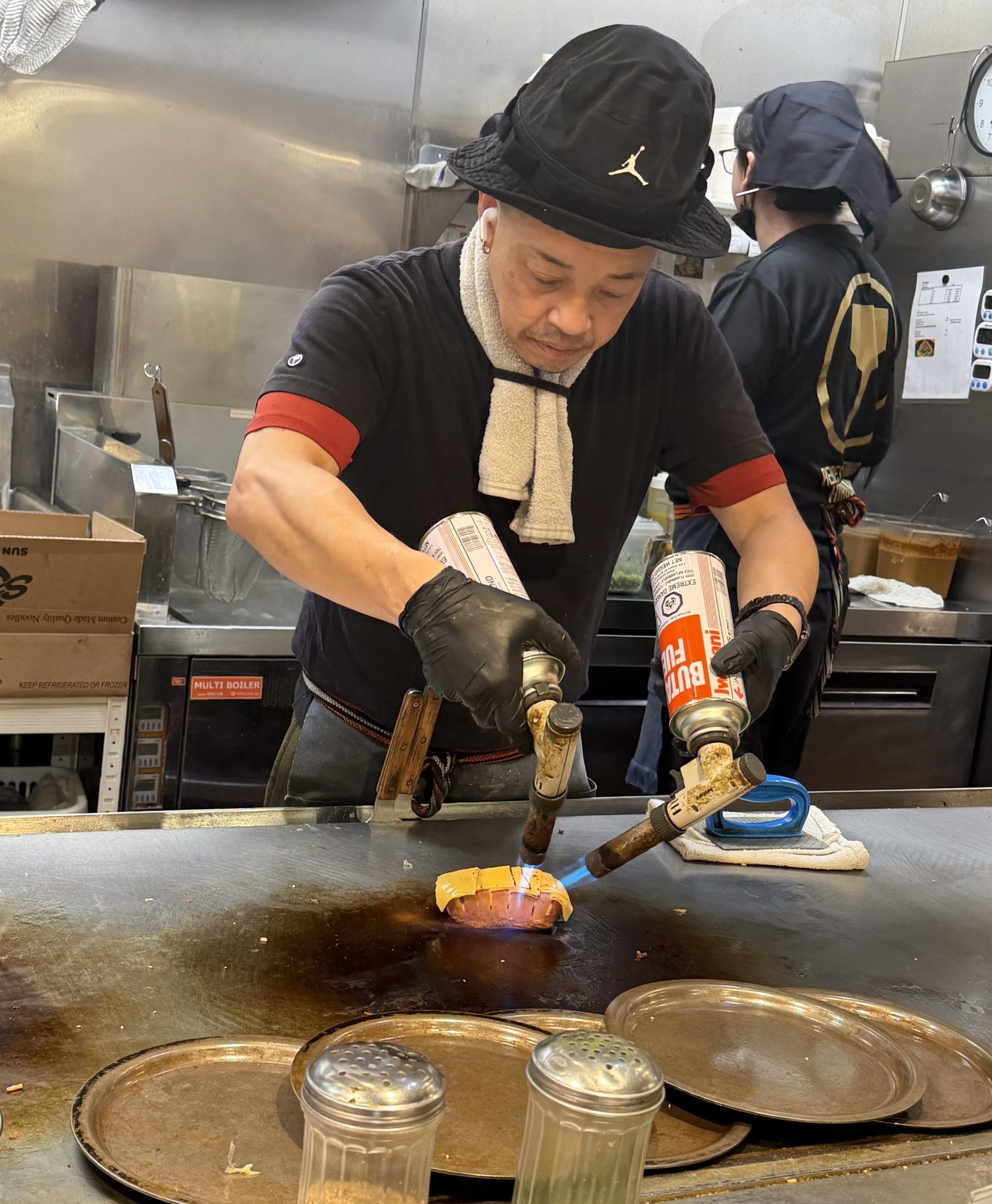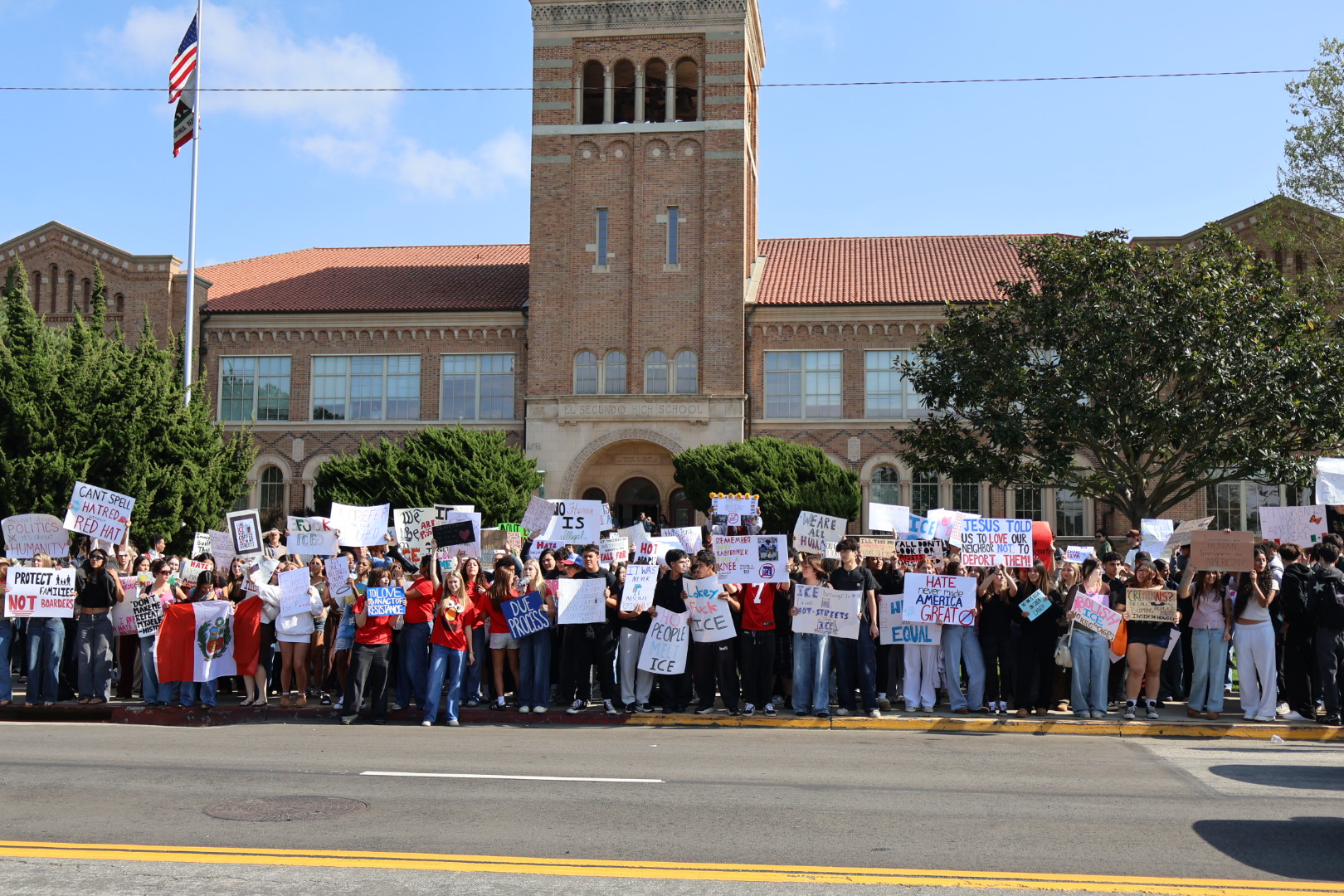The legendary country side project of the punk band X makes a rare appearance

Myth has it that the Knitters were among the first bands, back in the 1930s, to make the transition from being a simple hillbilly string band to what would later be more formally known as bluegrass music.
The band’s lead singer, John Doe, says that he and his mates were never much fixated on finding a name to call their music.
“Some folks might say our music has always been what you call ‘eclectic,’” Doe said. “Well, OK. As A.P. Carter used to say to me when we’d go song-hunting in the Clinch Mountains, ‘Buddy, it’s all music, y’know.’”
Myth also has it that the band’s “electric period” was influenced by its presence at one of the seminal moments in rock n’ roll history. Bassist Ray Bartel acknowledges as much.
“We were never what you’d call ‘purists,’ though,” Bartel said. “We were playing the Newport Folk Festival in ’65, and Alan Lomax and Pete Seeger were all in a huff backstage when Bob Dylan appeared there with an electrified band. But we listened to it, and we thought, ‘You know, that boy might just be on to something!’”
There is generally a least a kernel of truth in such myth. Not in this case.
The Knitters were quite demonstrably not yet born in the 1930s and barely out of their swaddling clothes come the 1960s. This myth is, in fact, the fabricated cover story of a band that was indeed among the seminal groups in rock history. They were called X, they were punk, and thirty years ago they ruled Los Angeles.
X was one of the most raucous, loud, and influential bands to emerge from the LA punk scene of the 1970s. But in 1982, at the height of their powers, they suddenly began appearing as The Knitters. They mysteriously and quite beautifully turned the volume down and went downright rustic.
Doe took the stage with acoustic guitar and crooned Merle Haggard songs, old traditionals, as well as some of his own new compositions that sounded like they might have played on a Nashville jukebox in the 1940s; fellow lead singer Exene Cervenka, known for her big-voiced punk yowls, suddenly sang like some kind of cross between Maybelle Carter and Loretta Lynn. And guitarist Dave Alvin – formerly of The Blasters – took a page straight out of Luther Perkins and snaked juicy old electric country leads all around the band’s sound.
The Knitters accidentally became one of the very first bands in what would later be called the “alt-country” scene. But twenty five years ago nobody knew what to call it.
“I’m glad alt-country is not some kind of a stigma nowadays,” Doe said in an interview this week. “There was a thing back when we started – along with Rank and File, Tex and the Horseheads, Jason and the Scorchers, bands like that – they called it cow punk. And that sounded like fucking cow pie. Alt-country then was sort of like a bastard stepchild – nobody really wanted it. Pretty soon Wilco was selling hundreds of thousands of records, and so was Neko Case, and it was like, ‘Oh, maybe this shit isn’t so bad after all.”
Poor little critter
The distance between country and punk isn’t as far as it might seem. Other punk musicians besides The Knitters have blurred that same line – such as Mike Ness of Social Distortion – and gone country or rockabilly.
Doe said country music could often be heard on the punk scene.
“It was kind of the comfort food of punk rock, you know,” Doe said. “It owed a lot to bands like the Blasters and that rockabilly kind of stuff – punk rock was really leaning toward that kind of Americana music, leaning towards Chuck Berry and Wanda Jackson.”
There were even some stylistic commonalities. The idea of punk was that anybody could do it, for example, not unlike some of the simpler strains of folk and old country music. Country music was once described as “three chords and the truth” and punk rock likewise adhered to a spare aesthetic.
“Punk rock was all about trying to be honest and straightforward and not having a bunch of extra stuff – being simple and straightforward, and you know, that is where alt-country started from as well,” Doe said.
The Knitters were born with little intent and less forethought. The first gig was a benefit for a bar.
“It was an afterhours club where we liked to go hang out and drink,” Doe said.
The band was, in other words, largely a reason to get together and play around and drink.
“As if we needed one,” Doe wryly recalled.
Alvin told American Music Magazine that the band kind of represented a break from band member’s other night jobs.
“The Knitters was kind of an excuse for John and Exene to get out of their role in X and it was for me, to put it bluntly, to get drunk and have some fun and really play together,” Alvin told American Music magazine. “We became really good friends.”
“We were not going to take ourselves too seriously,” Doe said. “To restate what Dave said about it being an excuse for drinking, it just gave us an excuse to take a vacation and still get paid.”
A few loose benefit gigs began to coalesce into something a bit more purposeful. In 1985, they actually released a record whose title was based on a country song Doe had unearthed from an old record he found in Bakersfield. It was called Poor Little Critter on the Road and it would influence a whole generation of country musicians with roots in punk, including members of Uncle Tupelo and later Wilco.
The album included such songs as Merle Haggard’s classic “Silver Wings”, Leadbelly’s “Rock Island Line”, and one of the sweetest modern country duets on record, a song called “Someone Like You” that was co-written by Doe and Cervenka. Their singing is rough-hewn but oddly graceful, and in its way more authentic to the roots of country music than anything you’ll find in popular country music nowadays.
“Exene and I are not perfect singers,” Doe said. “I’m not Johnny Mathis and she’s not Whitney Houston. But when we sing together, it’s very authentic. We like to think of it as authentic music.”
Alvin and Doe also co-wrote “The Call of the Wrecking Ball” while watching the Super Bowl; it’s a farmyard song about killing small animals. Even this follows a long country tradition – not regarding the death of animals, but the presence of humor in song.
“The difference, I think, between The Knitters and other alt-country bands is we were much more interested in string bands and the humor and playfulness of Vaudeville and Mini Pearl and stuff like that then we ever were in carving out our own signature thing,” Doe said. “We’re there to have a good time and hopefully let the audience have a good time, too.”
The band performed only very occasional gigs over the course of twenty years. In 2005, they released The Modern Sounds of the Knitters. If anything, it was a more revelatory record than their first. Doe’s voice has grown into that of a genuine country gentleman, and he does some pretty damned audacious things with it, such as singing the Stanley Brother’s spiritual classic “Rank Strangers.”
“I heard the Stanley Brother’s version many times, but then I heard Bob Dylan sing it, and I thought, ‘Oh, I can do this,’” he recalled. “I mean, Bob’s version is great, and it’s such a great song…It’s kind of like Charles Bukowski – his writing is so simple, you think, ‘Oh, I can do that. I can tell a story.’ That’s the encouraging thing about hearing someone else do a song, sort of what punk rock is all about – it allows everyone to take a stab at being in a band.”
“It’s possible to kill a good song, but you have a really good chance to try to do something well, and you can do it in so many different styles – the American songbook is all about interpreting and re-interpreting songs all the time,” Doe added.
The Knitters do just that with some X songs, as well – including such classics as “New World” and “Skin Deep Town” that feel oddly natural as country songs. Doe said that The Knitters has actually influenced all his writing. He is always on the hunt now for old country songs to learn, and learning those songs has helped him understand the mechanics of what makes a good song, regardless of genre.
“As a songwriter it’s definitely helped me,” he said. “Actually singing a song and playing a song is a lot different than just listening to it. You learn it inside out and you can understand how it succeeds and what it does….You learn to dig deeper way down into its guts. That’s the best way to understand a song and why it’s good and a little bit of how it makes you feel, and then you can kind of use that when you are writing your own stuff.”
The Knitters are back on the road and appear May 13 at Brixton in Redondo Beach. For more information, see www.brixtonsouthbay.com. ER








